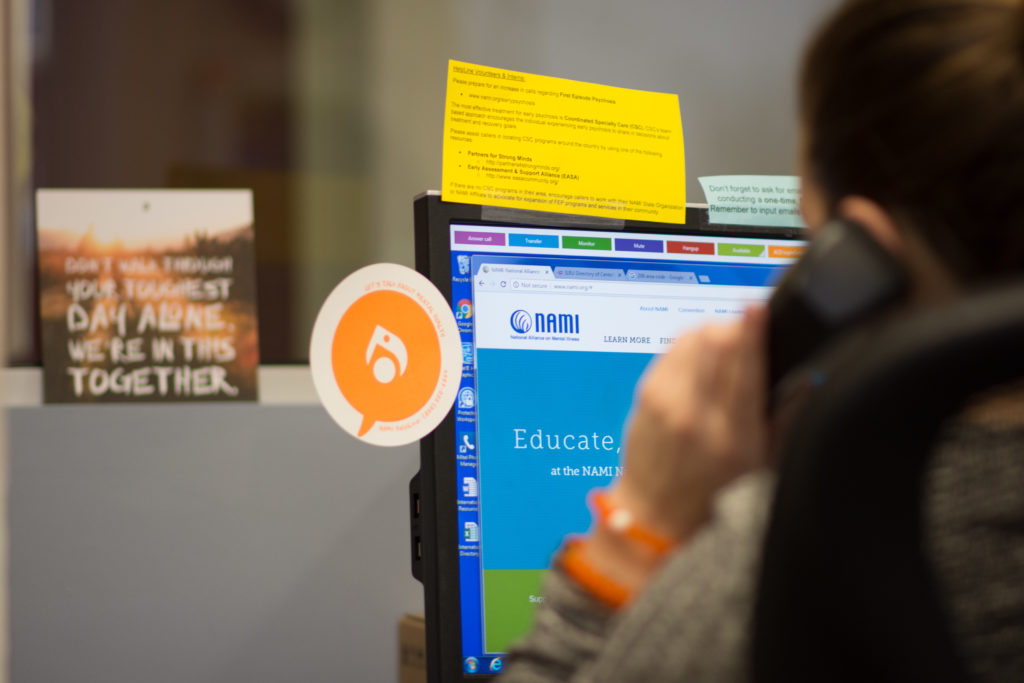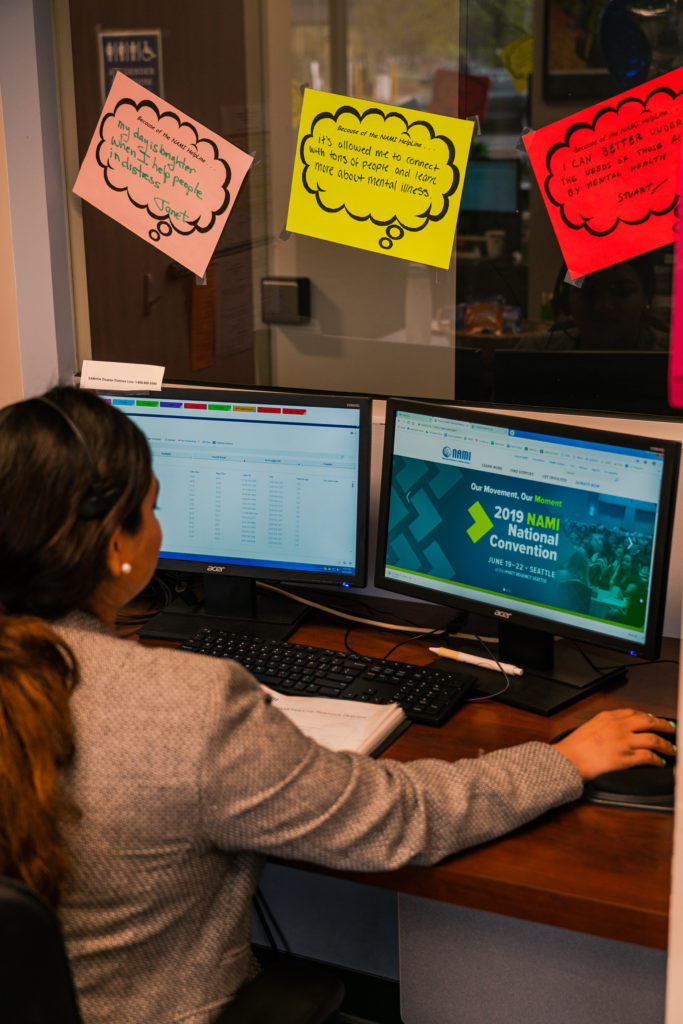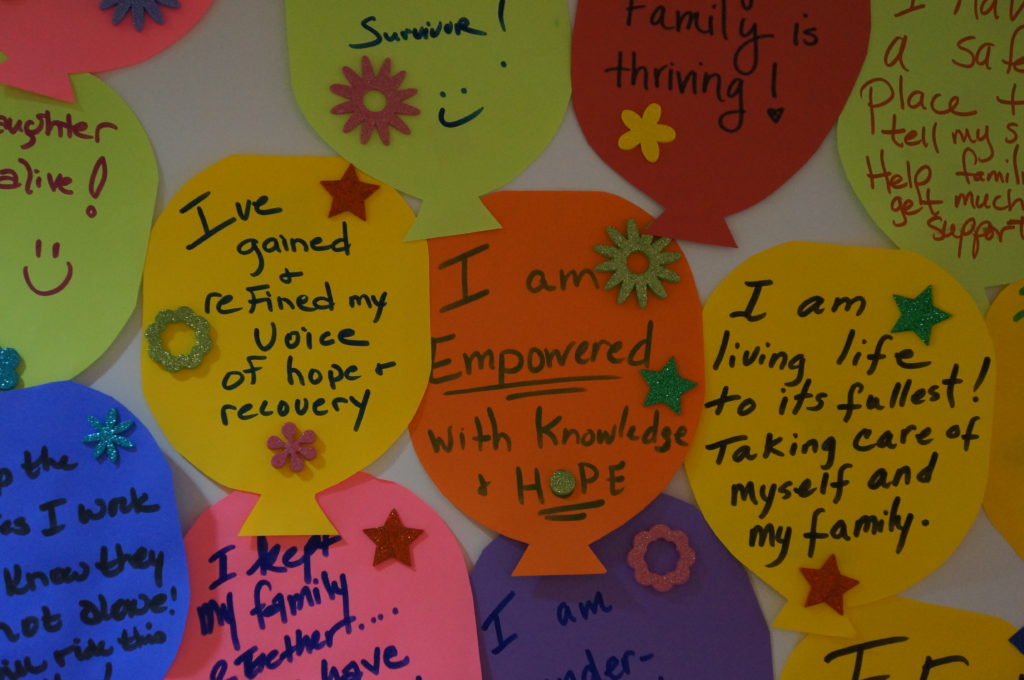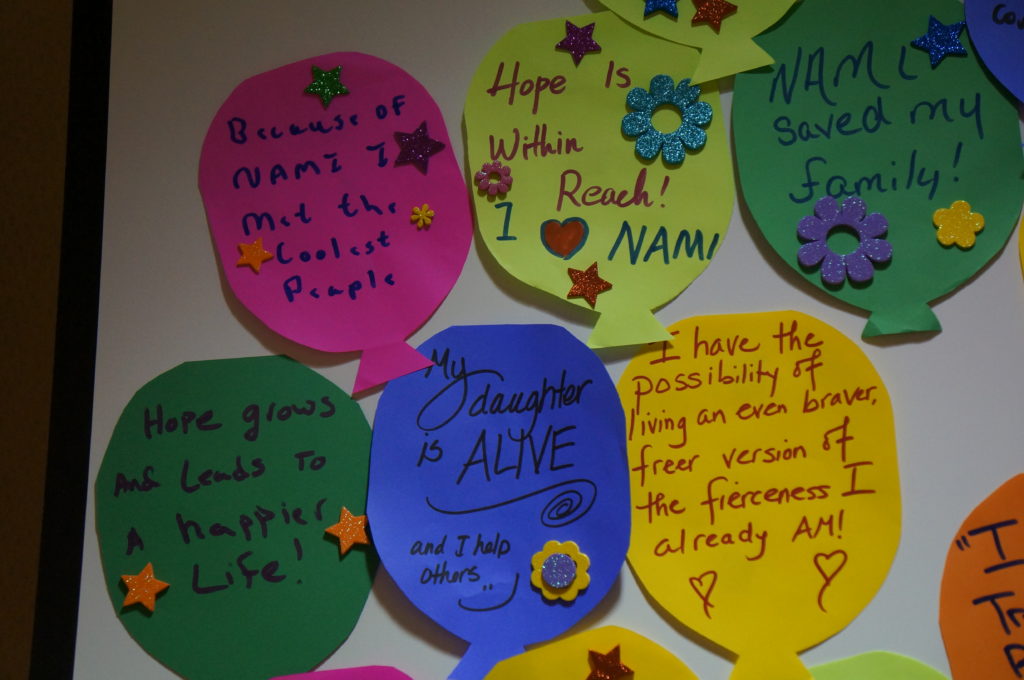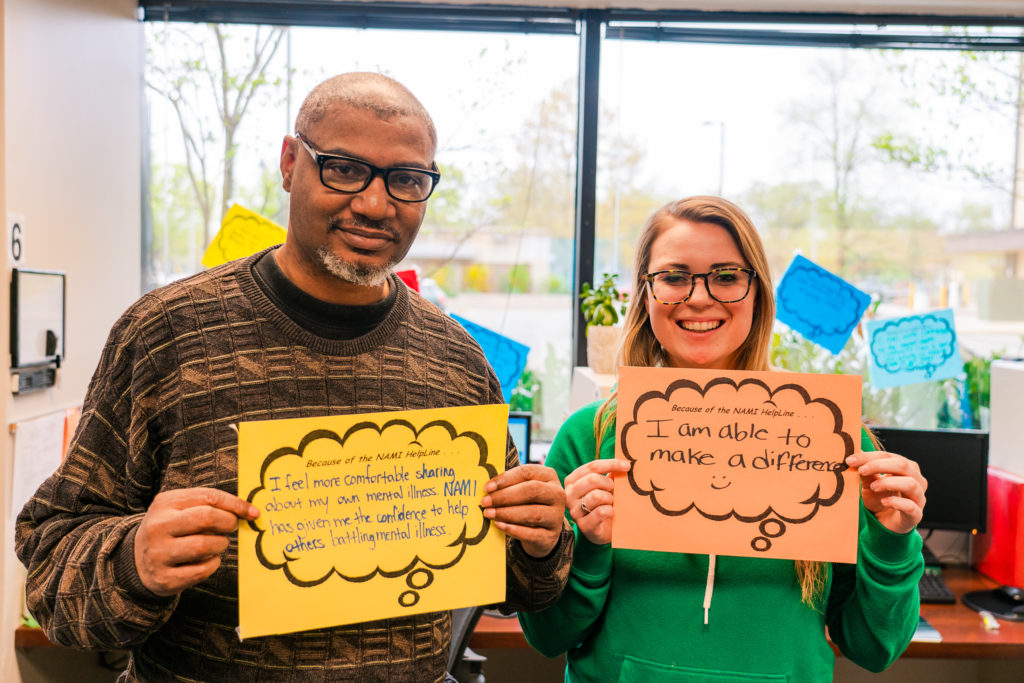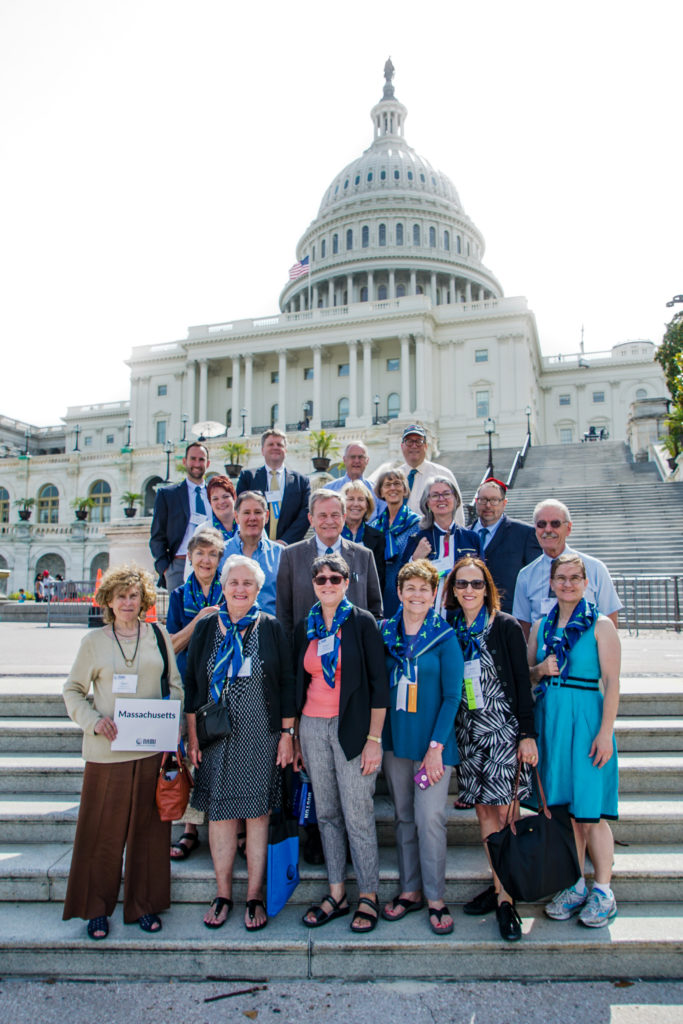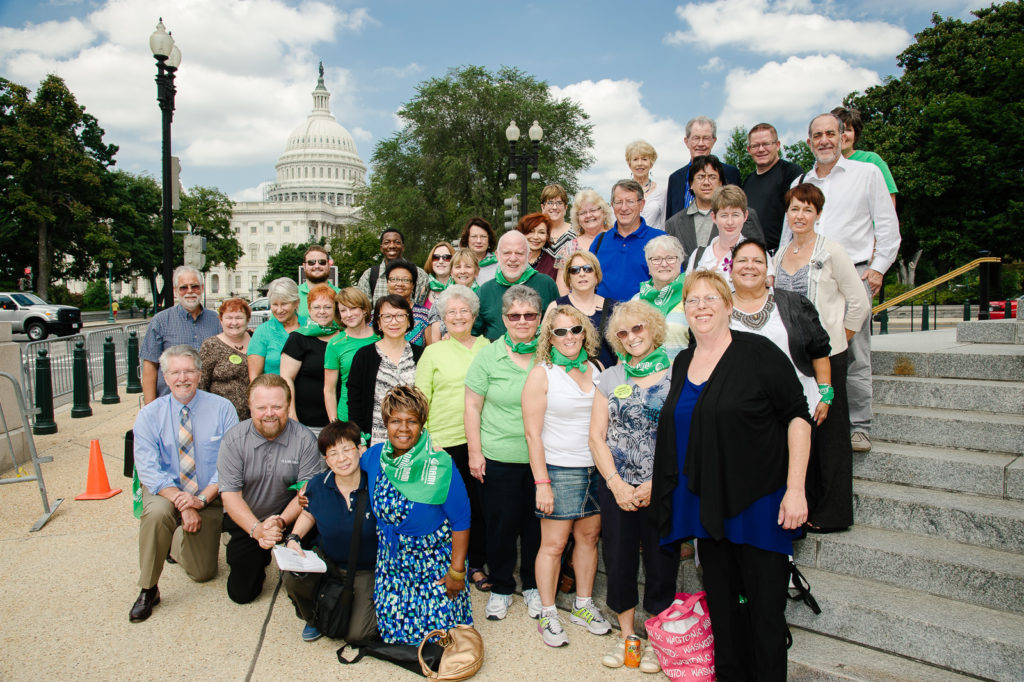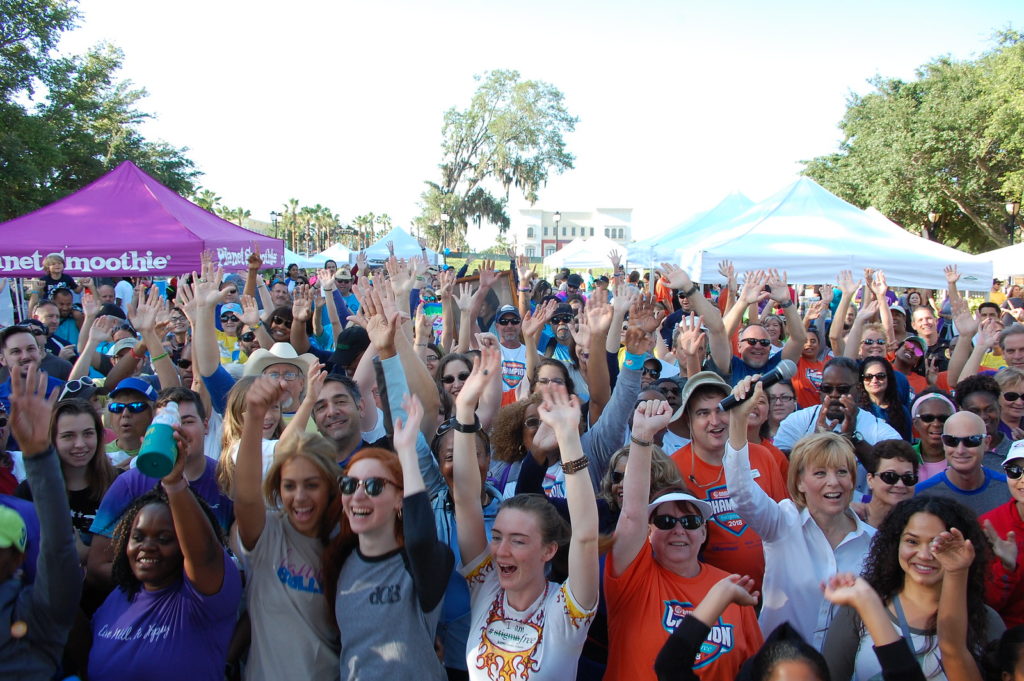Working Together to Better Serve Those Affected by Mental Illness
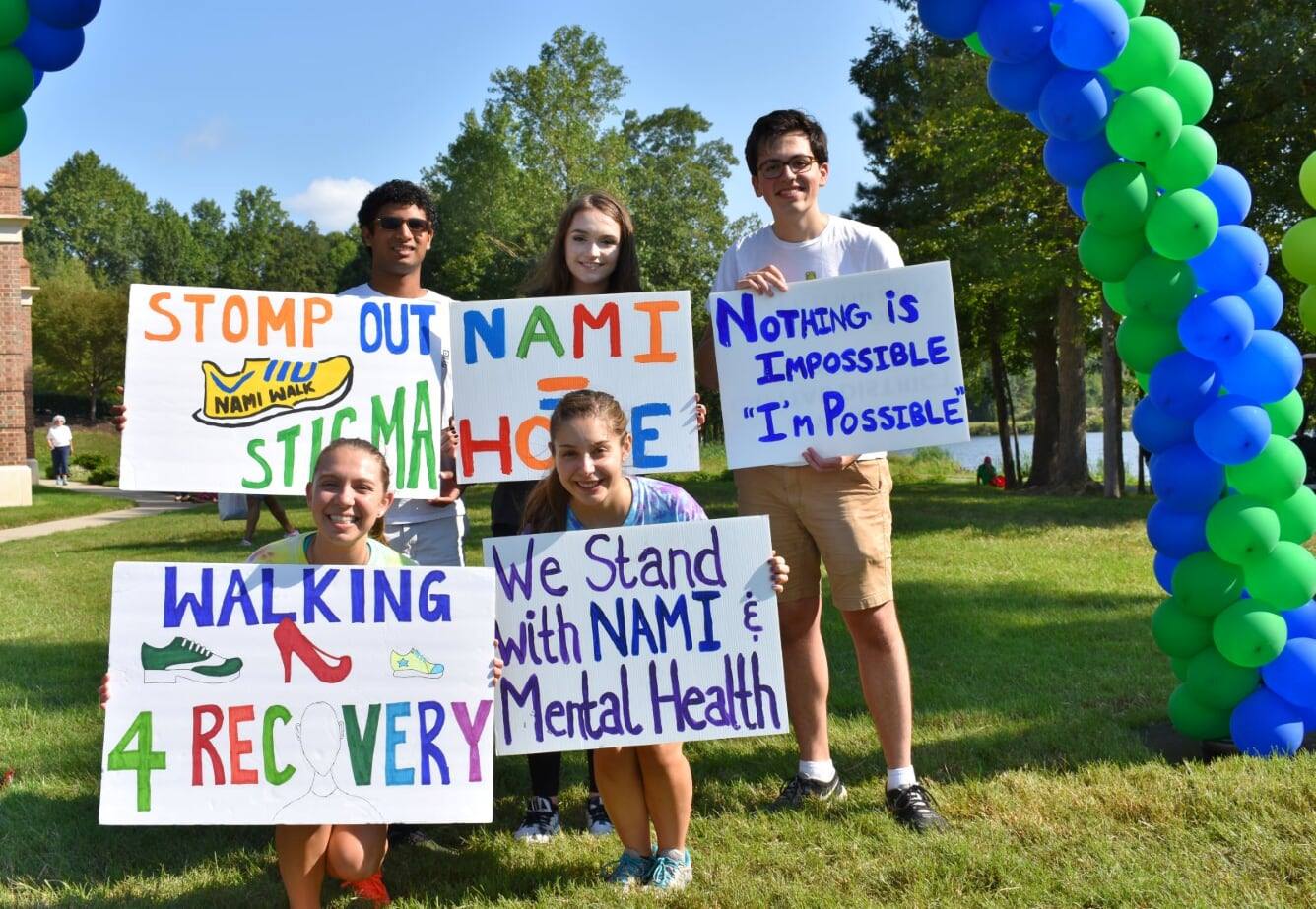
NAMI, the National Alliance on Mental Illness, is the nation’s largest grassroots mental health organization dedicated to building better lives for the millions of Americans affected by mental illness. NAMI’s greatest strength is its network of 650+ NAMI State Organizations (NSOs) and NAMI Affiliates (NAs) working in communities across the country. NAMI programs — which include education courses, presentations and support groups — are designed to empower participants in their mental health journey and provide coping skills to support their own recovery or that of a loved one. NAMI also shapes public policy, pushing for greater investment in research for better treatments, more supports for individuals with mental health conditions and equal coverage for mental health care. Lastly, we fight stigma and raise public awareness, so individuals and families affected by mental illness know that they are not alone and there is hope.
For the pilot initiative funded by The David and Lura Lovell Foundation, NAMI focused on the key areas of direct services through NAMI HelpLines, fundraising and mental health advocacy in partnership with NAMI Washington and NAMI Kansas.
HelpLine Alignment—NAMI’s national office operates an information and referral HelpLine to connect individuals and families affected by mental illness with real-time support, resources and information, as do many state and local NAMIs. By aligning HelpLines, NAMI can better serve those in need with high-quality, tailored support and information. NAMI created:
- A six-part online volunteer training to share with alignment partners. The training helps state and local NAMIs train HelpLine staff and volunteers more efficiently and cost effectively, and helps ensure consistent, quality service to callers at all levels of the Alliance.
- A shared HelpLine resource hub where our alignment partners can access a full library of national resources and upload their state and local resources. This means that someone calling their local NAMI’s HelpLine could receive information about national resources, while a caller to the national office would be able to receive information about resources available in their community.
- Shared data collection tools to track information about callers’ needs, demographics and support provided to allow for uniform data reporting across NAMI HelpLines.
The shared training and HelpLine resource hub were both extremely popular with our alignment partners; these offerings have now been expanded to seven other NSOs and NAs, with the goal of aligning with more partners in 2021 and beyond. One of our alignment partners, Lauren Simonds, Executive Director of NAMI Washington, summed up the impact of HelpLine alignment: “The new HelpLine platform is an amazing tool which, if implemented across the Alliance, would mean uniformity for data reporting, as well as access to the caller’s history with NAMI HelpLines, no matter where or when the person is seeking our help.”
Advocacy Alignment—NAMI worked to align advocacy efforts across each level of the Alliance. While NAMI’s national office is largely focused on advocacy at the federal level, many important decisions are made at the state and local levels. Equally important, there is a better chance of creating lasting change in the Nation’s mental health system when working in unison and harnessing the collective power of grassroots supporters. NAMI provided alignment partners:
- A shared advocacy communications platform, and training on how to use the platform, so NSOs can easily mobilize their supporters to make their voices heard.
- Backgrounders and standard messaging on a variety of mental health policy issues so NSOs could easily develop and send compelling petitions and advocacy alerts that are consistent with NAMI’s position.
- Ongoing guidance and technical assistance on creating and targeting effective advocacy campaigns.
These tools and resources were extremely popular with alignment partners, which led NAMI to expand these offerings to other NSOs, 15 in total. In many cases, it has boosted alignment partners’ advocacy work considerably. Sherri Vaughn, Executive Director of NAMI Kansas said in response to the alignment project, “we are in the process of implementing an internship program for advocacy and legislative issues and hope to bring on junior and senior-level college students to help carry the water on this important work.”
Fundraising Alignment—NAMI collaborated with alignment partners on a joint direct marketing campaign to test strategies for improving fundraising results for our NSOs and NAs. We developed three print solicitation letters and a series of email solicitations to send to a combined contact list, asking the recipient if they would donate to support all three levels of the alliance—the national office, their NSO and their local NA. Typically, fundraising throughout the Alliance is done separately. This pilot provided an opportunity to learn more about the partners’ existing fundraising efforts and audience. Results showed that this model of shared fundraising had benefits and drawbacks for each level of the organization. It did not result in substantively higher revenue for each participating NAMI, but it provided an opportunity to share best practices that could help alignment partners fundraise for themselves more effectively. The findings will inform future strategies for building fundraising capacity throughout the Alliance.
As the entire Alliance works to meet the increasing demand for mental health guidance, support and expertise, state and local NAMIs must be empowered to work together to achieve the impact envisioned by all. The Alignment Initiative helped identify new strategies for strengthening the Alliance, better serving individuals and families, and pushing for systemic change in the Nation’s response to the growing mental health crisis. New alignment partners have been added based on the successful strategies tested and lessons learned during the pilot. The Alignment Initiative will continue to pay dividends for years to come, both within the Alliance and in the lives of the people served.
